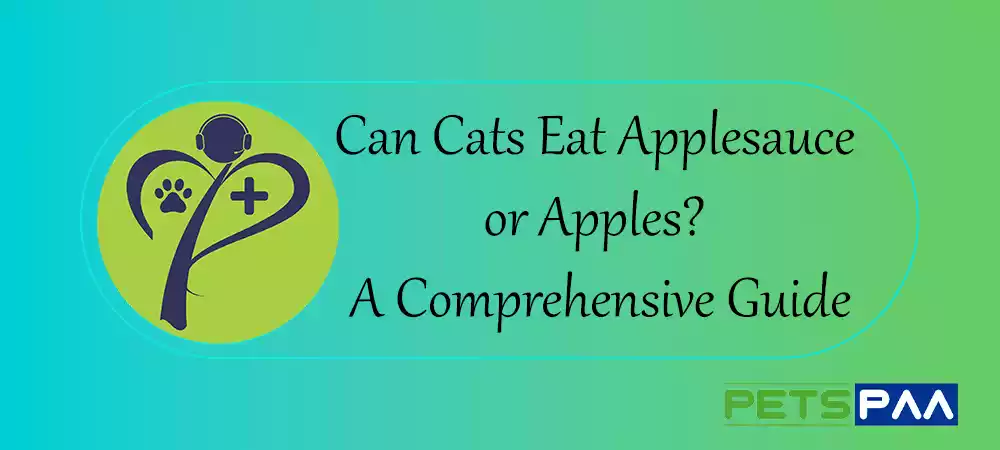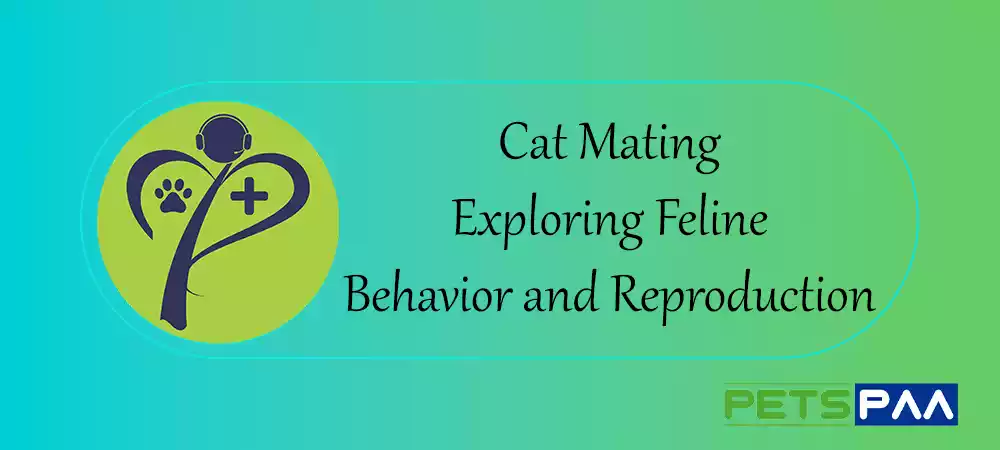Can Cats Eat Applesauce or Apples? A Comprehensive Guide
Welcome to our detailed information on whether can cats have applesauce and apples. As PetsPaa, we recognize the necessity of feeding your pets a nutritious diet. In this guide, we’ll look at whether cats can eat applesauce, the nutritional content it provides, the possible advantages and risks, its alternatives, and how to introduce it to your feline pets.
Table of Contents
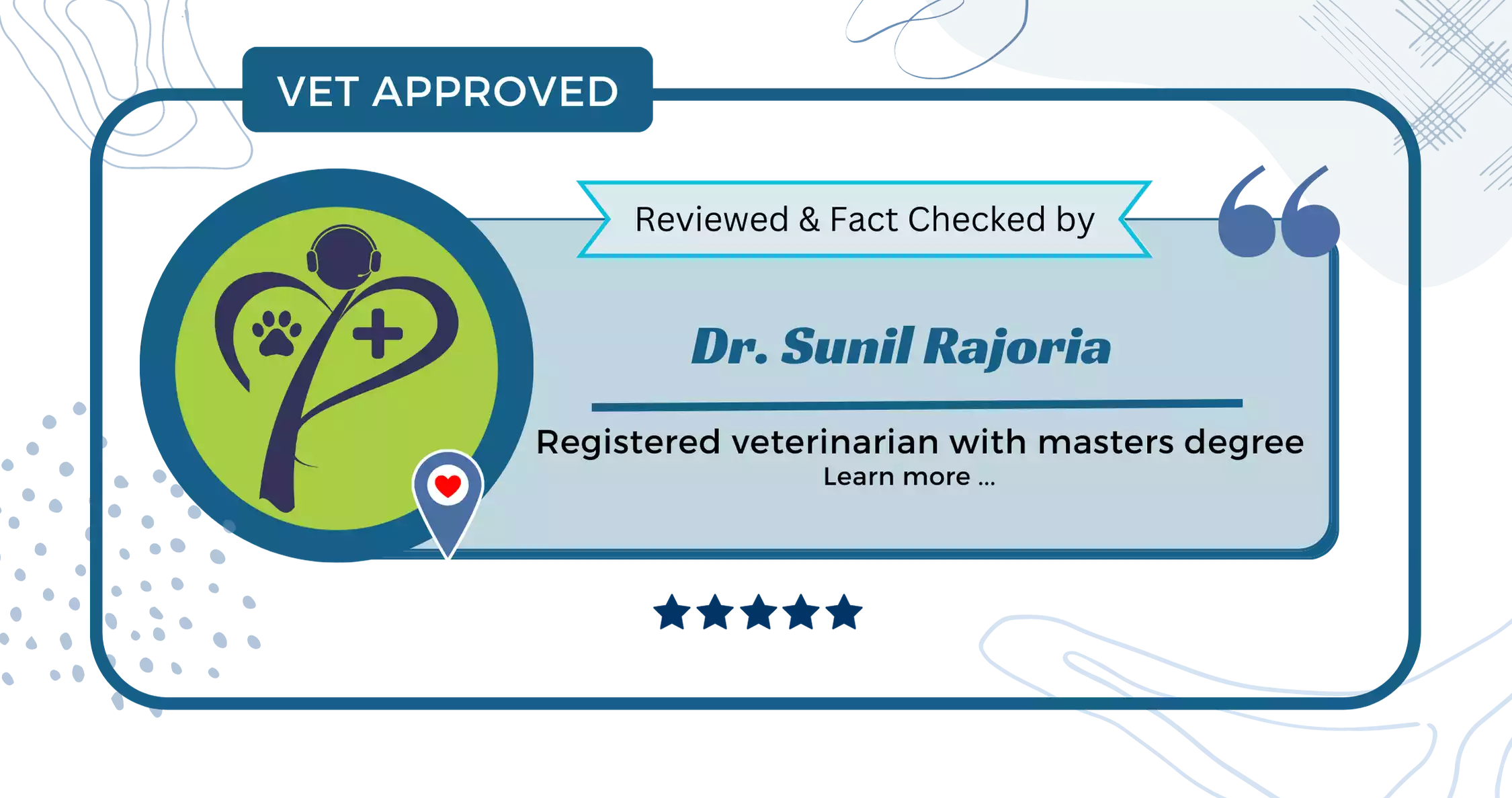
Introduction
Applesauce is a favorite human snack, and many pet owners may wonder if their feline pets may enjoy this delicious delight as well. Cats have certain nutritional requirements, and it is crucial to understand how some unconventional foods like applesauce, might affect their health.
Understanding a Cat's Diet
Prior to getting into the details of cats and applesauce, it’s important to understand your cat’s dietary needs. Cats are obligate carnivores, which means their bodies are built to get essential nutrients mostly from animal sources. Cats as humans, have certain dietary demands that must be satisfied in order for them to remain healthy.
Protein is a vital component of a cat’s diet since it is necessary for tissue development and repair, immune system support, and energy generation. Cats need animal-source trace nutrients, such as taurine, arachidonic acid and vitamin A.
Can Cats Eat Applesauce?
Cats may eat applesauce in small amounts, but it is not a required component of their diet. Although applesauce is not dangerous to cats, it should only be given as a treat on rare occasions to minimize health risks.
Cats are obligate carnivores which means they love to consume meat. Their nutritional requirements differ from humans and foods like applesauce may not provide the nutrients they require for a healthy life.
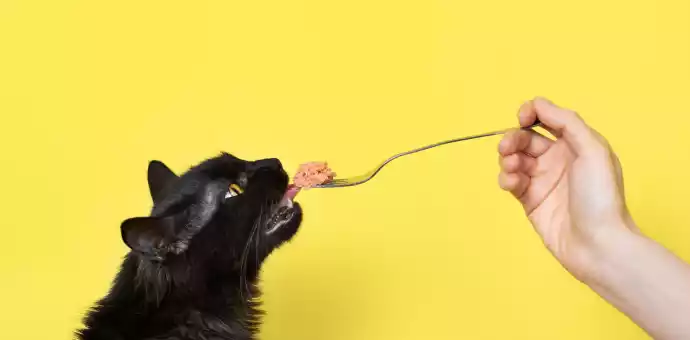
Is Applesauce Safe for Cats?
Caution is important when offering any human food to cats. Cats are carnivorous and their diet consists mostly of animal-derived proteins. While they can eat small amounts of various fruits and vegetables on rare occasions. It is crucial to be aware of the potential health risks when unconventional food is offered.
Cooking and mashing apple yields applesauce, a favorite human delight, which is sometimes sweetened with sugar or honey. While applesauce is typically healthy for humans to consume, we must assess its safety for cats before feeding it to them.
Applesauce Nutritional Value
Applesauce consists of cooked and pureed apples as basic ingredients, other than this it is also rich in fiber, vitamins, and minerals including vitamin C and potassium. On the other hand, cats have a limited ability to taste sweetness because of their genetics, and they lack the enzyme required to properly break down and absorb plant-based nutrients.
As a result, while applesauce has specific beneficial components, it should not be regarded a primary source of nutrition for cats.
Apple Nutritional Value
Apples are nutrient-dense fruit, which is high in vitamins, fiber, and antioxidants. Apples are not as beneficial to cats as they do to people in terms of nutrition.
Cats have specific nutritional needs, which can not be fulfilled by applesauce and apples alone. Small amounts of apples are good, they should not be a major component of their diet.
Applesauce's Potential Benefits for Cats
Applesauce includes various nutritional components that, when consumed in moderation, may provide some advantages to cats. Let’s look at a couple of these potential advantages:
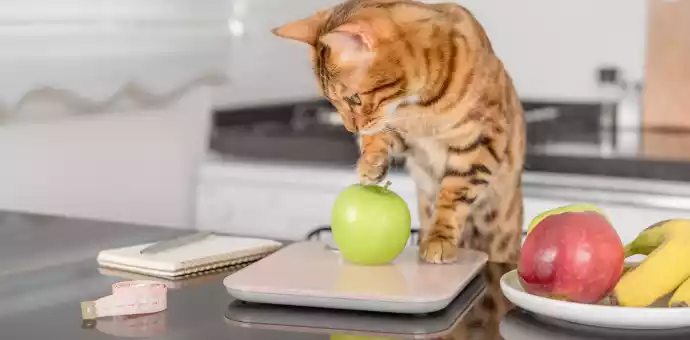
1. Fiber and Hydration
Applesauce, especially unsweetened kinds, contains a significant quantity of water, which can help a cat stay hydrated. Furthermore, the fiber in applesauce may help promote good digestion and bowel motions.
2. Flavor and Enrichment
Some cats may like the taste of applesauce as a treat on occasion, providing sensory stimulation. It might be a strategy to diversify their diet and provide a new culinary experience.
While these advantages exist, it is crucial to note that they are frequently available through more appropriate options. Let’s now look at the hazards and precautions that come with feeding applesauce and apples to cats.
Precautions and Potential Risks
Before giving your cat applesauce or apples, evaluate the potential risks and take the necessary steps to ensure their safety. Let’s look at some of these hazards:
1. Excessive sugar content
The majority of commercially marketed applesauce products have added sugars, which are harmful to a cat’s health. Cats’ metabolic processes vary from those of humans, and they are unable to digest significant quantities of sugar effectively.
Excess sugar consumption in cats can result in weight gain, dental problems, and even diabetes. As a result, it is critical to avoid giving cats applesauce with added sugars or artificial sweeteners.
2. Allergic reactions or sensitivities
Cats can develop food allergies or sensitivities like humans. Some cats may have adverse reactions to applesauce or apples. Vomition, diarrhea, itching, or skin irritations are all symptoms of allergies or sensitivities.
If you detect any of these symptoms after feeding your cat applesauce or apples, stop feeding it and visit a veterinarian.
3. Synthetic Additives
Some artificial additives such as preservatives or flavor enhancers may be present in certain commercially marketed applesauce products. These substances are potentially toxic to cats and may cause digestive discomfort, allergic reactions, and adverse effects.
If you still want to continue applesauce for your cat, make sure it should be natural and unsweetened applesauce.
4. Choking risks
Applesauce has a thick and sticky consistency that might cause choking in cats. Before giving your cat applesauce, make sure it’s properly mashed and free of huge lumps. To avoid choking events, keep your cat under supervision when eating applesauce.
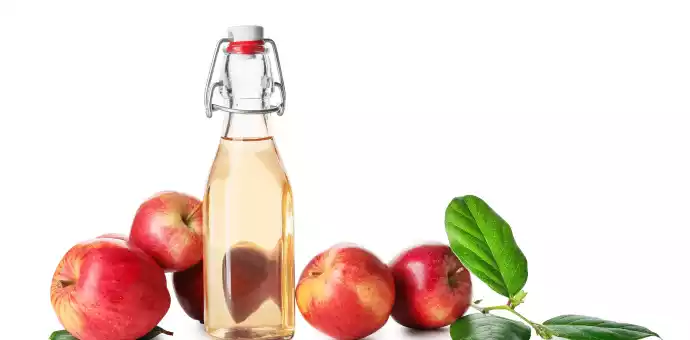
5. Pesticides and Toxins
Apples are among the fruits that might contain pesticide or toxin residues, especially if not cultivated organically. Even in small concentrations, these drugs can be dangerous to cats.
If you prefer to feed your cat applesauce or apples, properly wash and peel the apples to limit the danger of pesticide or toxin exposure.
6. Digestive Discomfort
Introducing any new food into a cat’s diet might cause stomach distress. Cats’ digestive systems are delicate and abrupt dietary changes or the introduction of unexpected foods might result in vomiting, diarrhea, or gastrointestinal discomfort.
To reduce the risk of gastric discomfort, introduce applesauce or apples gradually and in moderate amounts.
Applesauce Ingredients to Avoid
When considering offering your cat applesauce, be sure it doesn’t include any hazardous or dangerous components for cats. Avoid applesauce with spices like cinnamon or nutmeg, which can upset a cat’s digestive tract or potentially be harmful in large amounts.
Furthermore, artificial flavors, colors and sweeteners should be avoided because they might cause certain health problems in cats.

Introducing Applesauce to Your Cat
If you decide to offer your cat a little amount of applesauce as a treat, introduce it gradually and monitor for any adverse reactions. Begin with a small amount and watch out for any signs of stomach issues or allergic reactions in your cat.
If your cat has no adverse reactions, you can continue to serve applesauce as a treat on occasion. However, before introducing new food into your cat’s diet, always consult with your veterinarian.
Moderation is key
Moderation is vital when it comes to feeding cats applesauce or any other non-essential food. Cats have unique dietary needs and their basic nutritional needs should be satisfied by a well-balanced and species-specific diet.
Excessive applesauce intake might result in an imbalanced diet, weight gain, or other health problems. As a result, limit the quantity of applesauce you offer your cat and focus on their primary dietary needs.
Signs of Allergic Reactions
Every cat is different, and although some may accept applesauce well, others may react negatively. Itching, skin rashes, vomiting, diarrhea, and difficulty in breathing are some common symptoms of allergies in cats.
If you observe any symptoms after giving your cat applesauce, stop it immediately and visit your veterinarian.
Alternatives to Applesauce for Cats
There are safer alternatives to applesauce if you want to give your cat a fruit treat. When fed in moderation, the following fruits are typically safe for cats:
- Blueberries have a high antioxidant and fiber content.
- Strawberries are high in vitamins and minerals.
- Watermelon (seedless): a hydrating and delicious fruit.
- Cantaloupe (in moderation): A and C vitamins
When introducing new foods into your cat’s diet, keep in mind that moderation is key. Fruits should only be given in a small portion of their overall food intake, with the majority consisting of a nutritionally balanced diet.
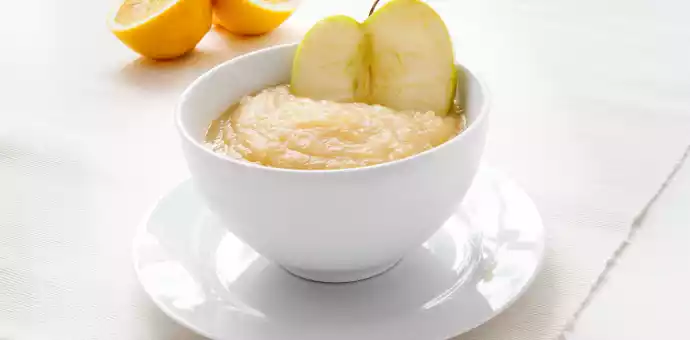
Homemade Applesauce for Cats
You can make your own homemade applesauce for your cat if you want to control the ingredients. Use only organic apples and exclude any sugar, spices, or additional flavors. Cook the apples until soft, then puree or mash until smooth then allow it to be cool completely before feeding.
Although you have more control over the quality and ingredients of homemade applesauce and cats can eat applesauce, we as PetsPaa still suggest consuming it in moderation and on rare occasions.
Conclusion
In conclusion, while cats can eat applesauce, it is not a necessary or vital element of their diet. Cats may eat small amounts of fruits and vegetables, such as applesauce and apples but with caution.
Applesauce can provide hydration and fiber for cats, but its high sugar level and possible hazards exceed the advantages. It is critical for responsible pet owners to prioritize a cat’s individual food needs and consult with a veterinarian for proper dietary suggestions.
You can feed your cat a nutritious and balanced diet by taking into account their specific nutritional needs and being cautious when introducing new items. Choosing vet-approved cat treats and nutritionally balanced cat food is the best approach to guaranteeing your cat gets the nutrients they need for maximum health.
When it comes to your cat’s nutrition, we at PetsPaa will cover this topic in our next posts. Prioritize your cat’s primary nutritional needs, and always check with your veterinarian before adding additional items to their diet.
FAQs (Frequently Asked Questions)
Cats can have a small amount of plain, unsweetened applesauce as an occasional treat, but it should not be a regular part of their diet.
Cats can have unsweetened applesauce in small amounts as an occasional treat, but it should not be a regular part of their diet.
It is not recommended to give cats applesauce with cinnamon as it can irritate their digestive system.
Applesauce itself is not toxic to cats, but it should only be given in moderation as an occasional treat.
Some cats may have allergic reactions to applesauce. Monitor your cat for any signs of allergies and discontinue use if necessary.
It is best to give only a small amount of applesauce to your cat as an occasional treat, ensuring it doesn’t compromise their main dietary needs.
Moderately Fine, Applesauce without added sugars, spices, or other harmful additives can be given to cats in moderation, but it should still be treated as a non-essential treat.
While some cats may chew on apple skin, it is not considered suitable food for them and may cause digestive issues. It’s best to avoid feeding apple skin to cats.
Some human foods that cats can eat in small amounts include cooked chicken, plain cooked fish, and plain cooked eggs. It’s important to avoid seasoning or adding any harmful ingredients.

